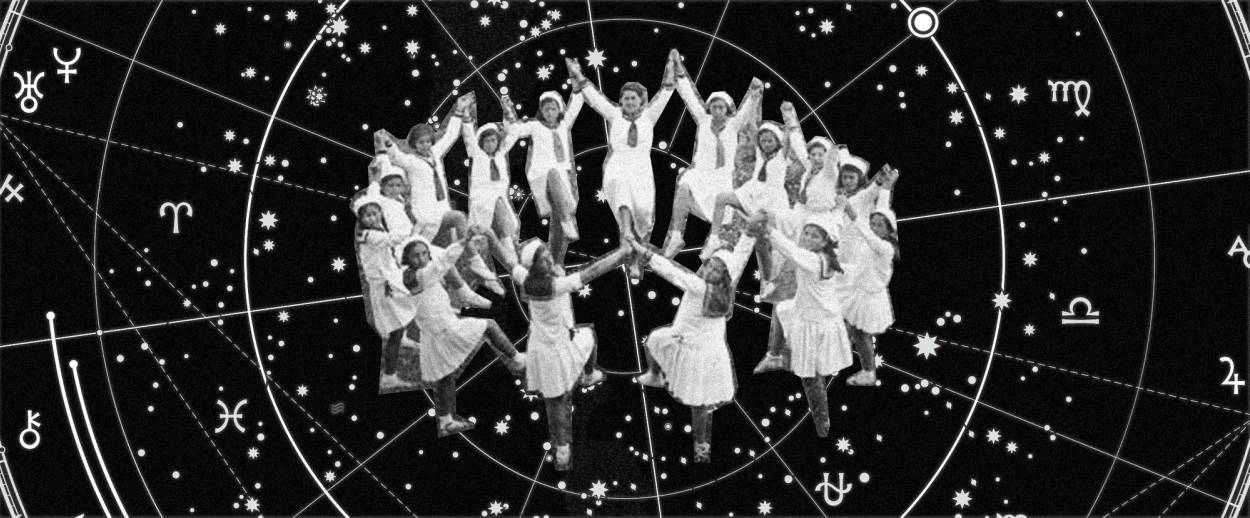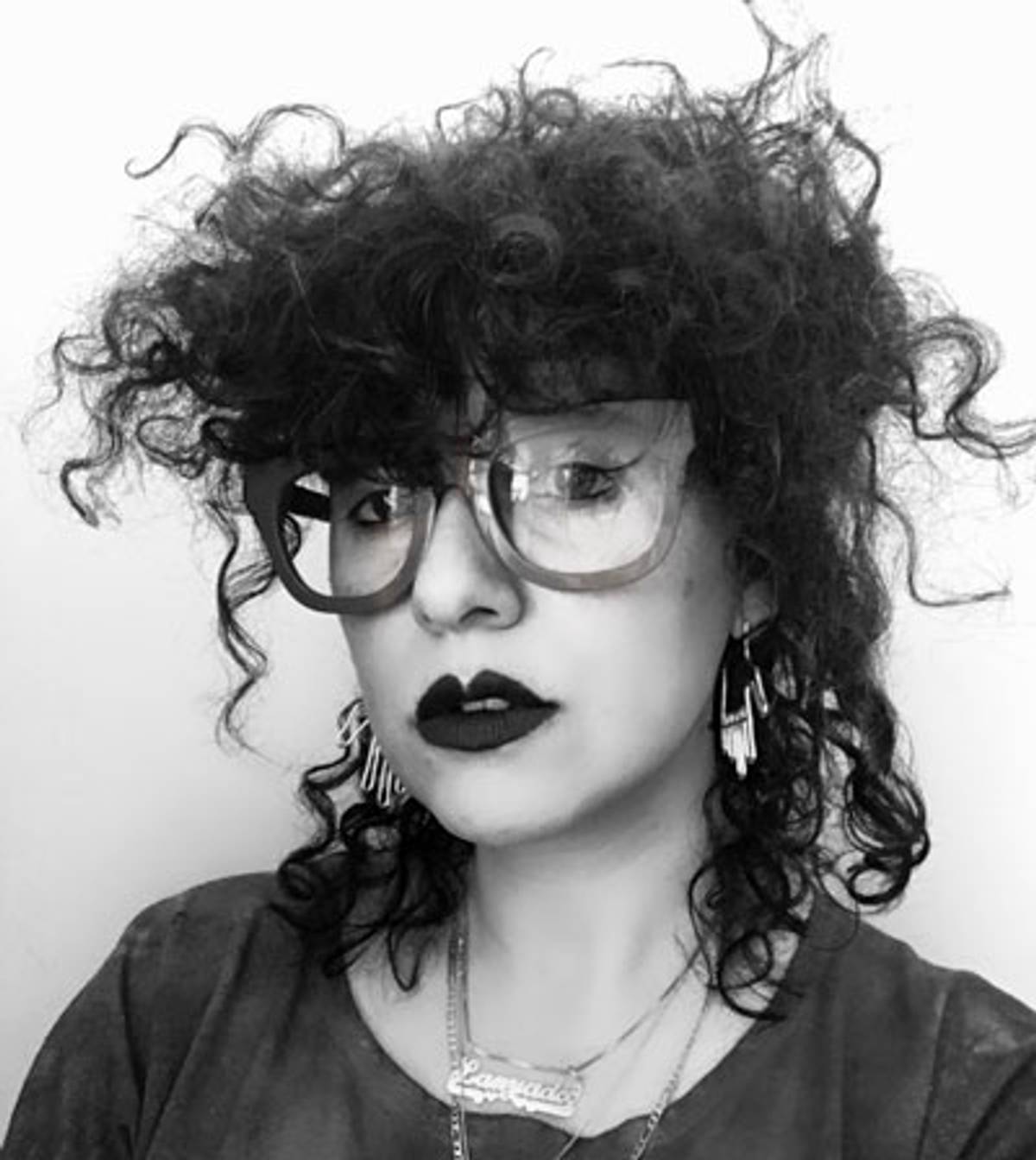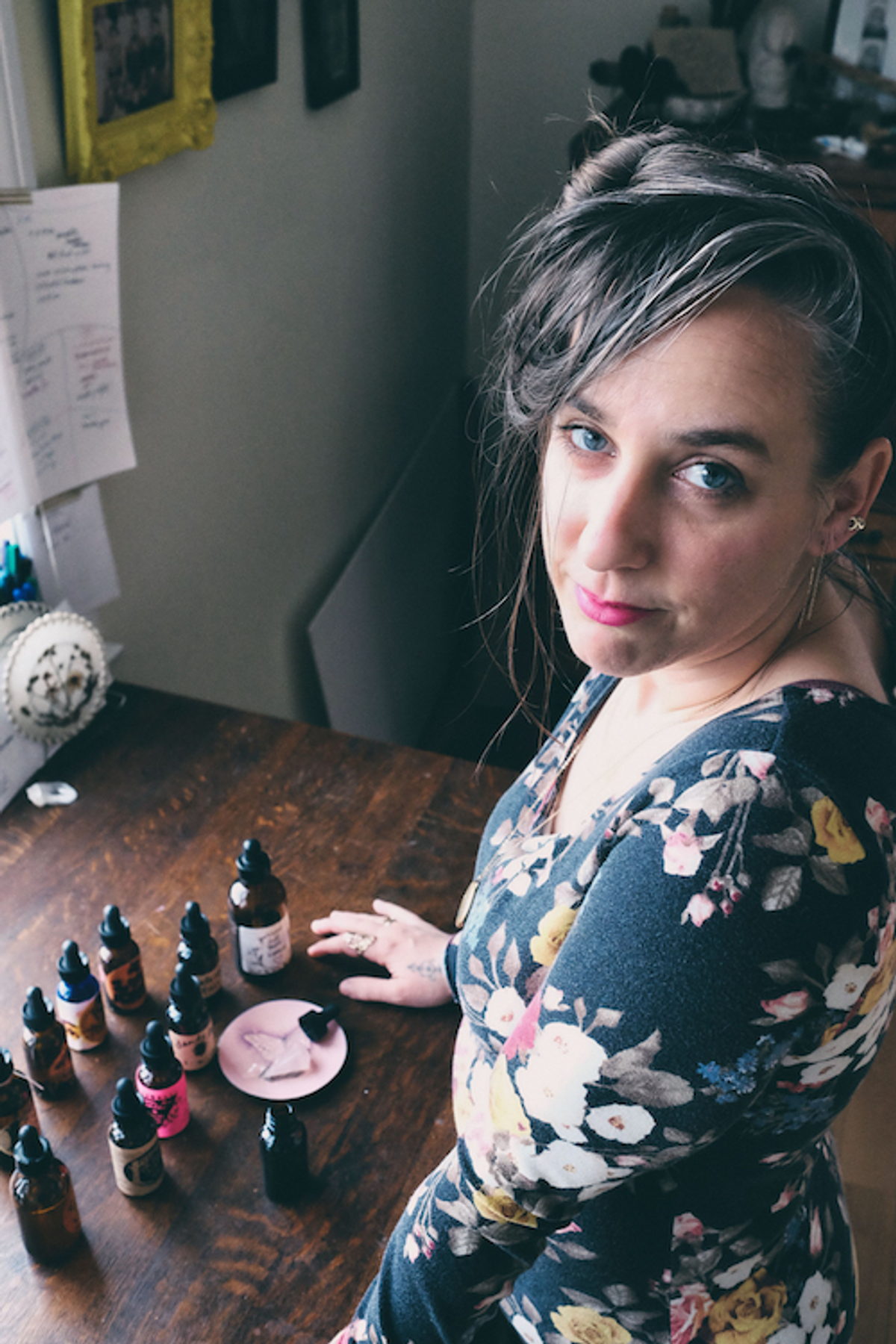Astrology, Jewish Style
On Tu B’Av, the ‘Jewish Valentine’s Day,’ Jewish astrologers and intuitives have the key to love




Tu B’Av, the 15th of the Jewish month of Av, celebrated this year beginning on the night of July 26, has always been a bit of a mystery. A vineyard festival often called the Jewish Valentine’s Day, it foreshadows the High Holidays as a day of repentance-free joy. In the Talmud, Shimon ben Gamliel said it was the day when “the maidens of Israel would go out and dance in the vineyards. The men would go there, and the maidens would say: ‘Young man, lift up your eyes and see what you will select.’” This ancient Jewish love holiday, a time to procure new love, with its mystical undertones, poses a question: What is love, and how do we go about finding it?
Just as the ancestors danced in white under the stars, today some Jewish innovators look to other creative, nature-based practices. Jewish astrologers and intuitive healers Jessica Lanyadoo, Dori Midnight, and Chani Nicholas lean on astrology and plant medicine to inform their practices, and have the potion for finding true love. But it may not be what you expected.
“This idea that we have about love, that love is something that we get, like pants, is not true,” said the Canadian-born Lanyadoo, a “medical intuitive” and “medical astrologer” who has been practicing since 1995.
Nicholas, an astrologer and writer who gets between a quarter-million and a million web hits a month, agrees. “I am not about helping you access finding a person to source love in your life,” Nicholas said. “Love comes when it does. Your chart will talk about it. … Instead of trying to focus on a particular relationship coming into our lives, we want to cultivate more meaningful relationships in every aspect of our lives.”
Nicholas, Lanyadoo, and Midnight, go-to helpers for the lovelorn and others looking to transform their lives, draw on different sources of often forgotten historically Jewish medicinal practices to inform their work. Astrology, plant medicine, and ritual amuletic practices are referenced throughout Torah and have been practiced by Jewish people around the world for centuries.
Nicholas, who calls her work “astrology for intersectional witches,” has 133,000 Instagram followers and refers to her work as “so Jewish.” “I doubt,” she said, “I wrestle, I critique, I have immense anxiety. Which is why I write and put things out in the world, my way.”
Growing up one of a handful of Jews in a small town in British Columbia, she outsourced her Judaism to New York. “We didn’t have shul, there was no rabbi, [and] there was a very informal very, very small Jewish community,” she explained. “I was the odd one out in the town I grew up in. I always hungered for more connection to my faith and ways of being Jewish. I felt very aligned with it, but I didn’t have immediate access to Jewish life.”
Astrology became her greatest tool, one she traces to rabbinic circles, specifically rabbi and astrologer Ibn Ezra. “In ancient civilizations such as Mesopotamia, observing the sky was an important aspect of science and religion,” Nicholas said. “That’s where Jews originate.” She also notes that mazel tov “means ‘under a good sign,’ may you be blessed, good luck—may the stars be in your favor. Mazel is about the constellation of good fortune that is happening in that moment.”
In her immensely popular horoscope write-ups and online workshops, which cost $10 to $48 per astrological event and have been mentioned in Rolling Stone, The New York Times, The Atlantic, and elsewhere, Nicholas focuses in particular on new moons. “Looking at each new moon as a way to focus, refocus, and center ourselves,” she said, “is an incredibly Jewish practice.” On her Instagram profile, she promises to “teach new moon workshops that help you make magic monthly,” and on her Twitter profile she labels herself a “feminist guide to the universe.”
Lanyadoo is an “astrologer and psychic medium” who charges $325 an hour and is booked until 2019. Her forthcoming book, Modern Lovers Guide to Astrology, due out in fall 2019, is about the astrology of relationships, offering “a feminist, queer inclusive, alternative lifestyle approach to issues with intimacy.” Now based in Oakland, she was raised in Montreal by “Yom Kippur Jews” who had “tarot cards and weed and cussing and music” at home. But on Fridays they went to her grandparents’ synagogue, with a mechitza, where “everyone was a Holocaust survivor or their descendant.” Simply put, “I am from very Jewish people,” Lanyadoo said.

Her father was born in Baghdad and raised in Israel, and her mother was the first born of Holocaust survivors from Poland. Lanyadoo learned to grapple with the dissonance between her Ashkenazi and Sephardic roots—and ultimately to translate between them. “Judaism,” she said, “is and always has been about wrestling, facing, grappling, asking the key questions.”
For Lanyadoo, this questioning is central to the work of astrology. She isn’t just predicting the future, but offering clients tools to face it now, with the stars and moons as informative guides. “I talk to people about their dating lives,” she said, offering “insights and strategies on how to navigate dating, sex, love, and boundaries and all of that important stuff.” Helping people find comfort in their own skin is vital, she said, and is “important to being able to identify and accept healthy love.”
*
For astrologers, intuitives, and other alternative practitioners, the stars and planets are one tool for finding love—and plant medicine is another. “If we weed out the patriarchy from the Tu B’Av story, we can embrace the free love in the fields,” said Midnight, a self-defined “Jewish witch,” born in 1976 in Chicago, who does “old traditional folk healing and listening for modern times, with a queer and social justice grounding.” Now based in Northampton, Massachusetts, Midnight was raised in a liberal Jewish community outside of Los Angeles and attended a Conservative shul in the Valley as a child. Her father is Ashkenazic with roots in Latvia and Romania, and her mother is Sephardic, with roots in Ukraine and the Balkans, where there was a large migration of Sephardim. In addition to intuitive counseling, Midnight offers elixirs and potions with names like “Witches, Bitches, and Hoes,” an herbal tincture that offers “protection, healing, and guidance for edgewalkers, dreamers, priestesses, sluts, and healers,” and the “Yes Liberation Elixir,” for “resilience and healing in the face of racism and oppression.”
Something of a cult figure in the queer Jewish world, Midnight says that she takes ancient rituals and amends them to modern needs offering everything from “queer magic and transition rituals” and “activist rituals,” to rituals for “fertility, love, creativity or health.”

Midnight also encourages her clients, whom she charges a sliding scale of $100 to $195 an hour, to look less for love in a partner and more for love everywhere, finding a way to relate to the world with total delight. Suggestions include making a pot of rose tea to drink and sweetening it with honey to open and heal the heart, reinvigorating a Jewish tradition of writing love spells on bay leaves, or crushing oregano and honey and putting it on your windowsill at night to “heal and enliven oneself.”
“This is not Western medicine,” Midnight warned. “It is not then the next day your love will walk into your life. It is thinking a different way. If you cultivate intimacy with something else, with a plant by drinking it every day, with gardening, you are already having intimacy and love in your life.”
Midnight, who is in a current Kohenet Hebrew Priestess Institute cohort led by Rabbi Jill Hammer, Taya Mâ, and Shoshana Jedwab, said her work is “explicitly Jewish,” drawing on Sephardic healing traditions passed down directly from her Sephardic great-grandmother growing up, as well as from many teachers along the way. “Shtetl magic,” she calls it, urging people to pull on a new thread of knowledge outside of the academic or traditional. “Do dream archaeology,” she suggested. “Engage your ancestors. … I’ve learned these things obviously we were not taught in Hebrew school.”
In her own practice she uses a shofar to “clear energy,” and works with plants “that are directly from moving through diasporic Judaism. She also uses garlic, rue, cedar, and honey, plants that she believes were used and called upon by Jewish women and marginalized people from ancient Hebrew times through the Diaspora, but were lost in the United States. “We didn’t want to smell like garlic or be thought of as doing witchcraft or folk healing,” explained Midnight. “My great-grandma stuck garlic in our ears when we had a cold. I think of that as shtetl medicine.”
She believes that “recovering what is purposely hidden from us is healing in and of itself.”
Midnight is clear that she does not “engage in goal-oriented magic,” like fixating on the goal of finding a romantic partner to fulfill all needs. “That misses the point of being in mystery, being human, and not being in control of our destiny. Being Jewish, I was taught to be in love with the mystery.”
Lanyadoo’s big advice to the avid dater: “You must start from the beginning.” She recommends bypassing the question “Is this my partner?” and giving time to knowing the other person. “When scared of being trapped in single, people tend to rush into a relationship. It doesn’t work well. My general advice is to slow it down.”
So fortify yourself and your love life on Tu B’Av with some of Midnight’s root medicine. Learn your ways with Lanyadoo’s counseling. Map the path with Nicholas’ astrology, including monthly online workshops, particularly on how to navigate upcoming summer eclipses, which she says are always “times of big change.” Or—like the women in Talmud—dance with others in borrowed clothes in a field before the moon.
***
Like this article? Sign up for our Daily Digest to get Tablet Magazine’s new content in your inbox each morning.
Merissa Nathan Gerson is a writer, sex educator, and rape prevention advocate. She teaches Alternative Journalism at Tulane University in New Orleans.